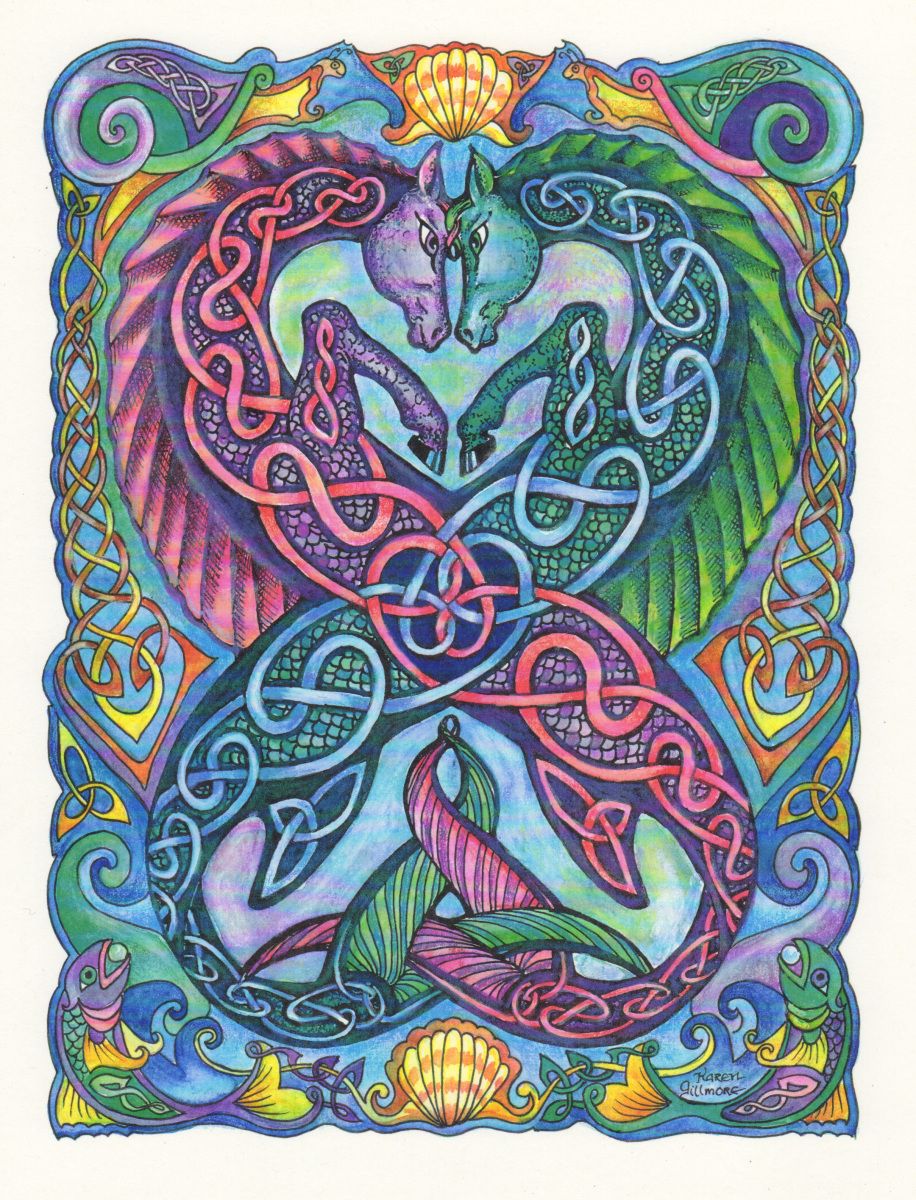Meaning
Irish Origins
- Gráinne is an Irish feminine given name, meaning “love” or “grace.”
- Its origins lie deep within Gaelic culture, with roots in the ancient Irish language.
- The name is derived from the Irish word “grán,” which has several meanings including “grain of corn,” “little love,” and “dear one.”
- Over time, the pronunciation evolved and the meaning shifted to primarily emphasize “love” or “grace.”
Gráinne is a name steeped in rich history and mythology.
- Legendary Connections: Gráinne features prominently in Irish folklore and legend.
- The most famous bearer of the name is Gráinne Ní Mháille (c. 1530-1603), a prominent Irish chieftainess known for her courage, intelligence, and fierce independence.
- Literary Significance: The name has also appeared in numerous works of literature, both traditional Irish tales and modern writings.
Gráinne’s enduring popularity in Ireland is a testament to its timeless beauty and profound cultural significance.
Celtic Roots
Gráinne, a name imbued with beauty and strength, has its roots deeply embedded in the rich tapestry of Irish Celtic culture. Its origins lie in the ancient Gaelic language, where it carries the profound meaning of “love” or “grace.”
The name’s resonance extends far beyond its simple translation, echoing through the annals of Irish mythology and folklore.
One of the most prominent figures associated with Gráinne is Gráinne Ní Mháille (often Anglicized as Grace O’Malley), a legendary chieftainess who lived in 16th-century Ireland. Known for her fierce independence, strategic brilliance, and unwavering loyalty to her people, she became a symbol of female empowerment and defiance against English rule.
Gráinne Ní Mháille’s life story is intricately woven with the tumultuous history of Ireland during a period marked by political upheaval and conflict. She navigated treacherous waters, both literal and metaphorical, battling not only external enemies but also societal norms that sought to confine women to domestic spheres.
Through her daring exploits and unwavering courage, she left an indelible mark on Irish history, cementing the name Gráinne as a symbol of strength, resilience, and the enduring spirit of Ireland.
Today, the name Gráinne continues to be cherished in Ireland and beyond, its timeless beauty and profound meaning resonating with generations.
It stands as a testament to the enduring power of Celtic heritage and the legacy of strong women who have shaped the course of history.
History
Medieval Ireland
Gráinne (pronounced “GRAW-nya”) is an Irish name meaning “love” or “grace”.
Its origins lie deep within the mists of Celtic mythology and early Irish literature.
In medieval Ireland, Gráinne was a popular name, bestowed upon both noblewomen and commoners alike. Its association with beauty, love, and grace made it a cherished choice for parents across all social strata.
The name’s enduring popularity is undoubtedly linked to its prominent role in Irish mythology, particularly the legendary tale of Gráinne Ní Mháille, a warrior queen renowned for her beauty, fierce independence, and romantic exploits.
Her story, woven through centuries of oral tradition and later chronicled in written accounts like the “Táin Bó Cúailnge” (The Cattle Raid of Cooley), captivated generations of Irish people.
- Gráinne Ní Mháille was a powerful chieftainess who commanded respect and loyalty from her followers.
- Her marriage to the famed warrior, Fionn mac Cumhaill, leader of the Fianna (a legendary band of warriors), became one of Ireland’s most enduring love stories.
- Though their love story was filled with adventure, tragedy, and betrayal, Gráinne Ní Mháille’s name remains synonymous with strength, passion, and resilience in Irish culture.
The legacy of Gráinne Ní Mháille, coupled with the intrinsic beauty and meaning of the name itself, has ensured its continued relevance throughout history. Even today, Gráinne remains a popular choice for baby girls in Ireland and beyond, a testament to its enduring charm and cultural significance.
Literary Representations
Gráinne (pronounced “grawn-ya”) is an Irish female given name with rich historical and literary significance. Its origins lie deep within Gaelic tradition, carrying connotations of beauty, power, and independence.
The name’s etymology points to the Irish word “grán,” meaning “grain” or “seed.” This simple root carries potent symbolic weight. It evokes notions of fertility, abundance, and the potential for growth and development. The name Gráinne can therefore be interpreted as “beautiful grain” or “fair seed,” suggesting a connection to nature’s bounty and the promise of life.
However, Gráinne is far more than just a pretty name; it has been entwined with Irish mythology and literature for centuries. One of the most famous figures bearing this name is Gráinne Ni Mháille (1530-1603), a legendary warrior queen from County Clare. Known as “Gráinne O’Malley” in English, she challenged English authority and commanded her own fleet of ships. Her story has been passed down through generations, inspiring tales of courage, ambition, and defiance.
The literary world also embraces Gráinne with open arms. In the epic saga “Táin Bó Cúailnge” (The Cattle Raid of Cooley), a character named Gráinne plays a pivotal role. She is depicted as a beautiful and headstrong woman who captures the heart of Ferdiad, one of the most skilled warriors in Ireland. Her story highlights themes of love, loyalty, and tragedy, showcasing the complexity and depth associated with the name.
Beyond these prominent examples, the name Gráinne continues to resonate within Irish culture. It evokes a sense of heritage, strength, and feminine power. Its enduring popularity serves as a testament to its timeless appeal and the lasting impact of those who have borne this distinguished name.
Variations and Adaptations
Modern Usage
Variations and adaptations of a name often arise from various linguistic and cultural influences over time. The original form of a name might undergo changes due to phonetic shifts, language contact, regional dialects, or simply personal preference.
In the case of Irish names like Gráinne, variations can occur both within Ireland itself and in other countries where Irish culture has been influential. These variations might involve alterations in spelling, pronunciation, or even the complete adoption of a different form that retains a similar meaning or sound.
Modern usage often sees a blending of traditional and contemporary influences. Some individuals may choose to use the classic, original spelling of Gráinne, while others opt for more modern variations like Grainne, Grania, or even Anglicized forms such as Grace or Joan. This mixing of styles reflects the evolving nature of language and identity.
The popularity of certain variations can also be influenced by factors such as trends in naming, media portrayals, or the association of a particular name with a historical figure or literary character.
Anglicized Forms
Variations and adaptations of names often arise due to several factors, including phonetic shifts, cultural influences, and geographical dispersal.
In the case of the Irish name Gráinne, which means “love” or “grace,” we find a rich tapestry of variations and adaptations throughout history and across different linguistic contexts.
Within Ireland itself, anglicized forms emerged as Gaelic speakers increasingly interacted with English during periods of colonization and societal change. Some common anglicizations of Gráinne include Grainne, Graina, Grania, and Grene. These variations often reflect attempts to render the original Irish pronunciation more accessible to English speakers.
Beyond Ireland, the name has traveled across continents and cultures, leaving its mark on various languages. In Scotland, for instance, the name is sometimes found as Graina or Grania, echoing the Irish forms but with subtle phonetic adaptations.
The international appeal of the name has also led to its adoption in other countries, often accompanied by variations that align with local naming conventions. In France, for example, a variation like Graine might emerge.
Furthermore, the name’s inherent beauty and meaning have inspired creative reinterpretations. In literature and popular culture, we encounter novel variations such as Grianna, Greann, or even Raina, each carrying a unique nuance while retaining a connection to the original source.
The evolution of a name like Gráinne illustrates how language is dynamic and ever-changing, shaped by history, culture, and individual creativity. Its numerous variations serve as a testament to its enduring appeal across time and borders.
- Best LeadsGorilla Alternatives for 2025 - April 26, 2025
- Best Overloop Alternatives for 2025 - April 25, 2025
- Best Lead411 Alternatives for 2025 - April 25, 2025


